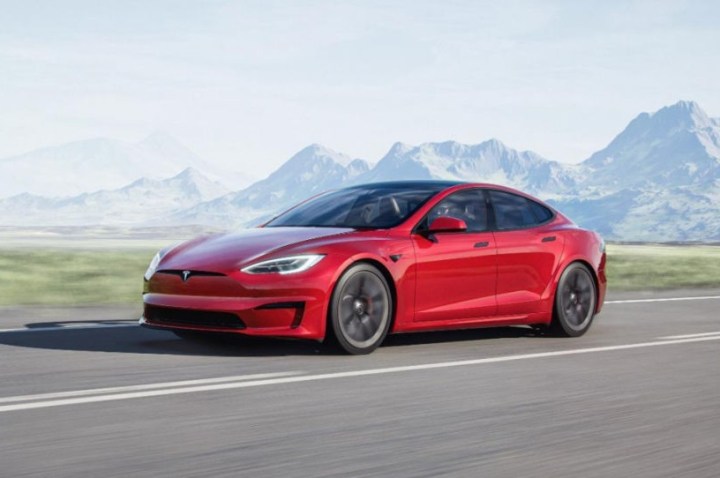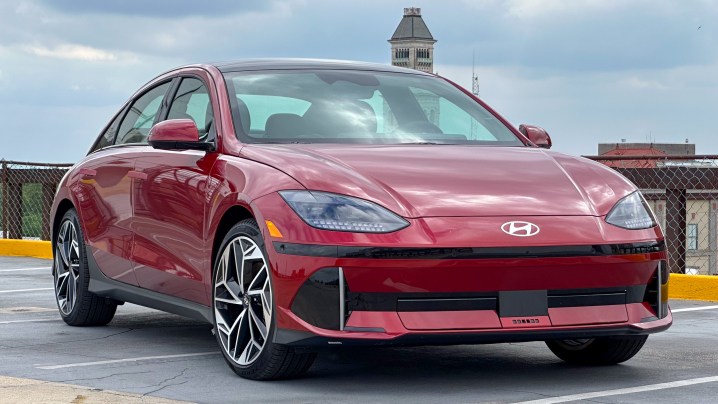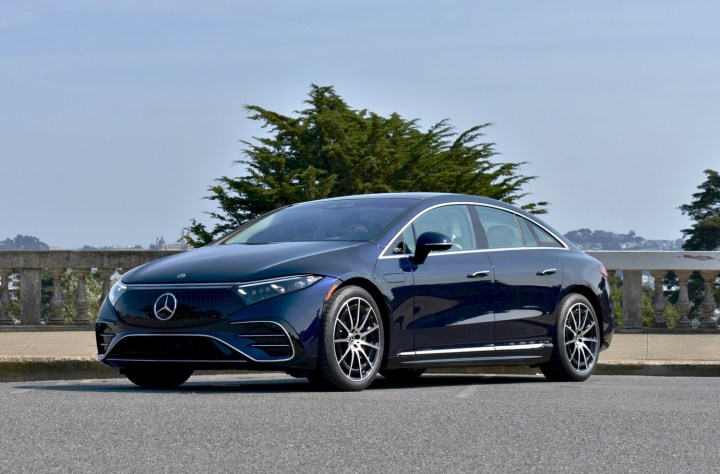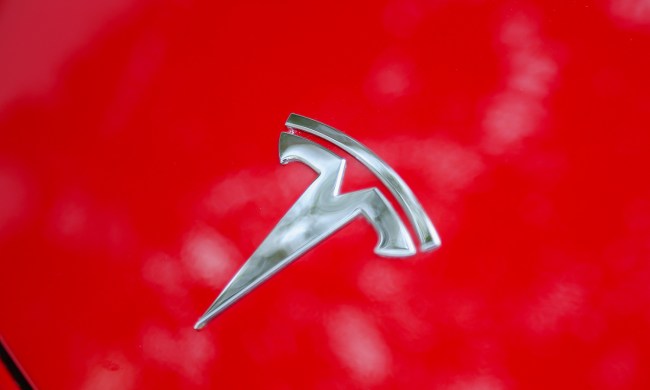
Electric cars are becoming increasingly common, but there’s still one issue that new EV buyers run into: range anxiety. Because charging isn’t as easy or as quick as filling up a tank of gas, range can make or break an EV — it dictates how far you’ll be able to drive before you run out of juice.
Electric cars will continue to gain longer and longer ranges over time, but there are already some impressively long-range cars available. Here’s a look at the electric cars with the longest range.
Lucid Air Dream Edition

The Lucid Air boasts more range than any other electric car right now — by a large margin. The car comes in multiple models, and the Dream Edition offers 520 miles of range. Even the lowest-range model offers an impressive 420 miles of range, which beats every other electric car on the market right now. The Lucid Air has gotten cheaper over the years since its release, and the base Lucid Air Pure starts at $69,990. That’s still not cheap, but it’s a lot cheaper than the price of the Air when it first launched, which was over $85,000.
Chevrolet Silverado EV

The Silverado EV is one of the only electric trucks out there, and it happens to offer an excellent range. The truck sits in with up to 440 miles of range — though that range is estimated by Chevrolet and not the EPA. It has other features, too — the truck can accelerate from 0-60mph in 4.5 seconds, and has an almost 6-foot bed for those who need the storage space. It’s not cheap though, starting at $96,495 for the First-Edition RST model, though more models will likely join the lineup soon.
Rivian R1S

Rivian is a company that is on the rise recently, like Lucid. The R1S is the company’s SUV, and it offers a unique design, tech-forward features, and more. It’s currently on its second generation, and we found that it’s the best electric SUV you can get right now, thanks to its spacious and modern interior and super-helpful tech features. It has a great range, too — up to 410 miles for the dual-motor variant with the “Max” battery pack. You can also opt for a cheaper “Large” battery pack that delivers 330 miles of range or a “Standard” battery with 270 miles. The Rivian R1S starts at $75,900.
Tesla Model S

The Tesla Model S is Tesla’s most premium sedan, and it shows in the range. The car offers up to 402 miles of range from the base model, which places it among the best out there. Even the Model S Plaid (with higher performance) still offers 359 miles of range, which should be enough for most uses. The Model S has also gotten much cheaper over the years, and now starts at $74,990. That’s pricey, but the trade-off is that you’ll get one of the best ranges out there, along with access to Tesla’s excellent charging network, with thousands of Superchargers around the country that can top off your battery in a hurry.
Tesla Model 3

The Tesla Model 3 is another Tesla option that tops the list, but this one is far cheaper than the Model S. The Model 3 offers between 272 and 363 miles of range, depending on the model you get — with the longest-range version being the Tesla Model S Long Range Rear-Wheel Drive. The Model 3 is the cheapest option so far, starting at $38,990 for the base model, which has 272 miles of range. Like its more expensive older brother, you can use Tesla’s vast Supercharger network, which is a pretty huge advantage.
Hyundai Ioniq 6

The Hyundai Ioniq 6 is essentially Hyundai’s take on an electric sedan, taking on the likes of the Tesla Model 3. The Ioniq 6 has a stylish design with Hyundai’s pixel design elements, along with a range of up to an impressive 361 miles, depending on the trim you go for. The Ioniq 6 starts at a pretty low price too — with a base price of $37,500.
Mercedes-Benz EQS Sedan

Mercedes-Benz also offers some great electric cars, and the EQS is one of them. The EQS is available in a range of different trims, and the EQS 450+ offers 352 miles of range, which is very good. The EQS is one of the more luxurious electric vehicles out there, with a stunning interior and high-quality materials, but it’s also very expensive. The EQS 450+ starts at $104,400, and it’s the cheapest version of the EQS. Mercedes is also helping build out a charging network in partnership with ChargePoint, but that has yet to materialize in the real world.
Tesla Model X

The Tesla Model X is the third of four Teslas on this list, and the first SUV. The car has good long-range capabilities, with the base model offering 335 miles and the higher-performance Model X Plaid offering 326 miles. However, like the Model S, the Model X is also pretty expensive, at $79,990 for the base model at the time of this writing. But you still get the advantage of having access to the vast Supercharger network, like all Teslas.
Ford F-150 Lightning

The Ford F-150 Lightning is a great option for those looking for an electric pickup truck. The F-150 Lightning offers a few different models, with most of them offering a long-range option that offers up to 320 miles of range. It also has a lot of the same smart features as other electric Ford cars, like a big touchscreen for controlling many aspects of the truck, and support for Apple CarPlay. The truck can charge at 155kW, which will allow it to charge from 15% to 80% in around 36 minutes, according to Ford.
Ford Mustang Mach-E

Ford offers a great crossover-sized vehicle too, in the form of the Ford Mustang Mach-E. The Mach-E has become highly popular thanks to its solid range and low price. Like the F-150 Lightning, the vehicle offers a range of up to 320 miles, and it’s also available in a series of different trims — and the base model starts at $39,995, which isn’t bad. The car is fast, and also has a large display at the front with supports for Apple CarPlay.
Tesla Model Y

The Tesla Model Y is the budget SUV option from Tesla. It is to the Model X what the Model 3 is to the Model S — in other words, it’s a cheaper SUV with still-great range. There are three models available right now: the Long Range Rear-Wheel Drive with 320 miles of range, the Long Range All-Wheel Drive with 308 miles of range, and the Performance with 279 miles of range. It’s not overly expensive, though it’s not exactly cheap either — the Long Range Rear-Wheel Drive model starts at $44,990. And we’ll say it again: The Tesla Supercharger network is no small perk.



